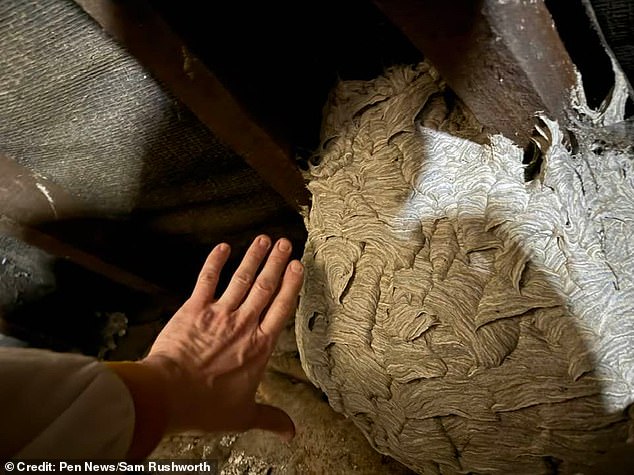
UK Alert: 2025 Declared ‘Year of Wasps’ as Monster Nests Hit Space Hopper Sizes
Britain Braces for Wasp Surge as Heatwave Sparks "Year of the Insects"
Britain is facing a significant rise in wasp populations, with experts warning of larger nests and increased aggression due to this year’s scorching spring temperatures. Andrew Dellbridge of Ace Pest Control in Norfolk highlights that warm weather has triggered an early emergence from hibernation, giving colonies more time to expand. Nests are already surpassing last year’s size, and by autumn, they could reach the scale of space hoppers (see image 1).

Why the Surge?
The early spring warmth allowed queen wasps to establish nests sooner, accelerating colony growth. Dellbridge notes that nests typically peak in September or October, but this year’s colonies are ahead of schedule. “What we’d expect in late autumn, we’re seeing now,” he says. Aggressive behavior, usually linked to late summer food shortages, may also spike earlier as competition intensifies.
Nests: Bigger and Bolder
Wasps are notorious for building nests in lofts, walls, and gardens. This year, their colonies are expanding rapidly, with some chewing through plasterboard and insulation to create space. Dellbridge recalls a case where wasps gnawed through an old wall, causing a six-foot section to collapse onto a homeowner’s bed (image 2).

Sting Risk and Behavior
Unlike bees, wasps can sting repeatedly, injecting venom that breaks down cell membranes and triggers pain signals to the brain. While most stings cause temporary discomfort, they’re best avoided by staying calm and avoiding sudden movements. Dellbridge warns that nest disturbances—even accidental ones—could lead to swarms.
Why 2025 is the “Year of the Insects”
Consistent warm weather has created ideal breeding conditions. Pest controllers are already tackling nests with thousands of wasps—a scale typically seen later in the season. “We’re up for a challenge,” Dellbridge says, urging homeowners to address nests early.
Quick Facts About Wasps
- Sting Mechanism: Venom contains enzymes that prolong pain.
- Late-Summer Aggression: Colonies become frantic as they transition from raising workers to new queens.
- Diet Shift: By autumn, they seek sugary foods, increasing human encounters.

What to Do
- Avoid swatting or provoking wasps.
- Seal food and bins outdoors.
- Contact professionals for nest removal—DIY attempts risk agitating colonies.
As summer progresses, experts caution that these resilient insects will become harder to ignore. With nests growing faster and behaving unpredictably, Britons are advised to stay vigilant.
Images: Daily Mail (nest examples), Getty (sting close-up).
(Word count: ~600)


